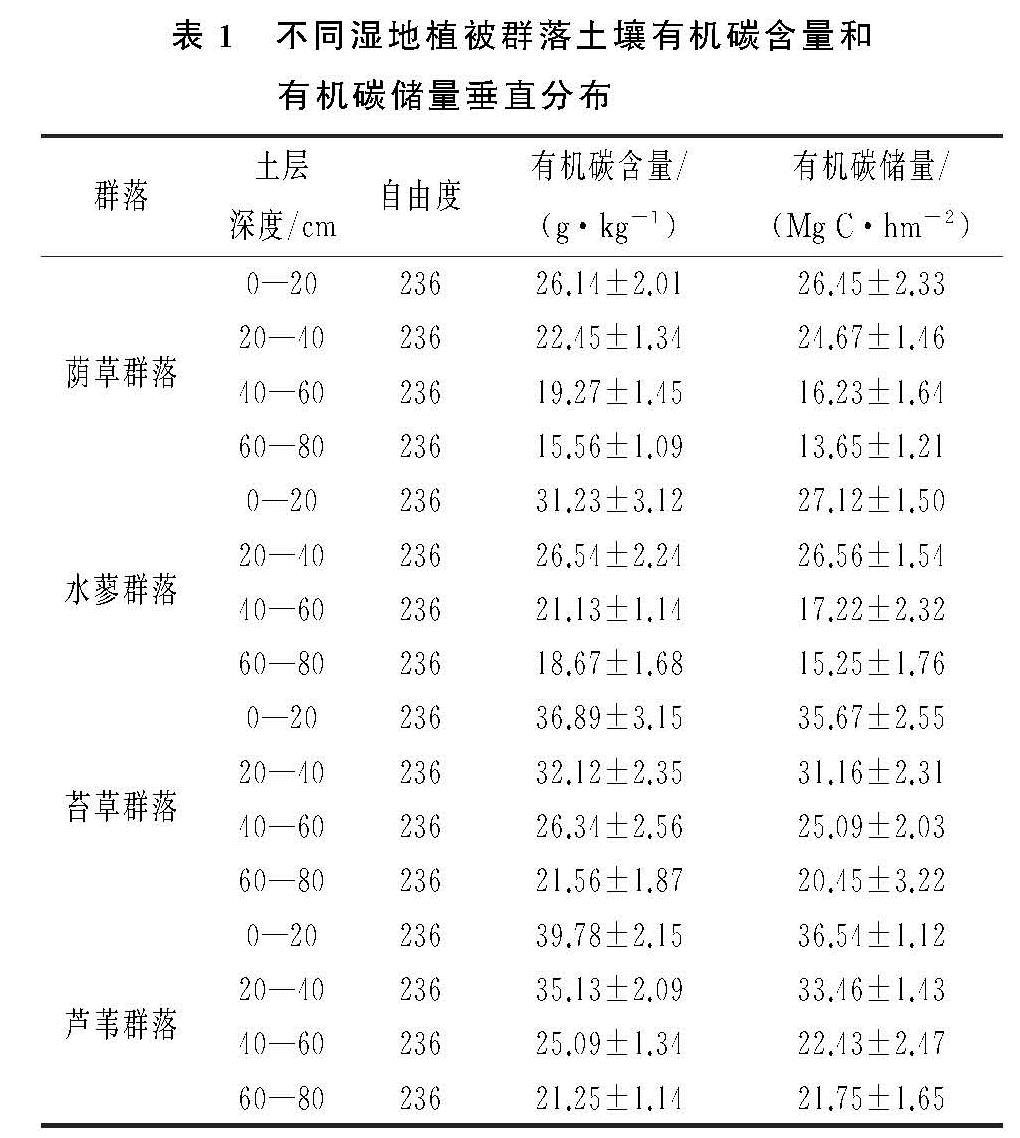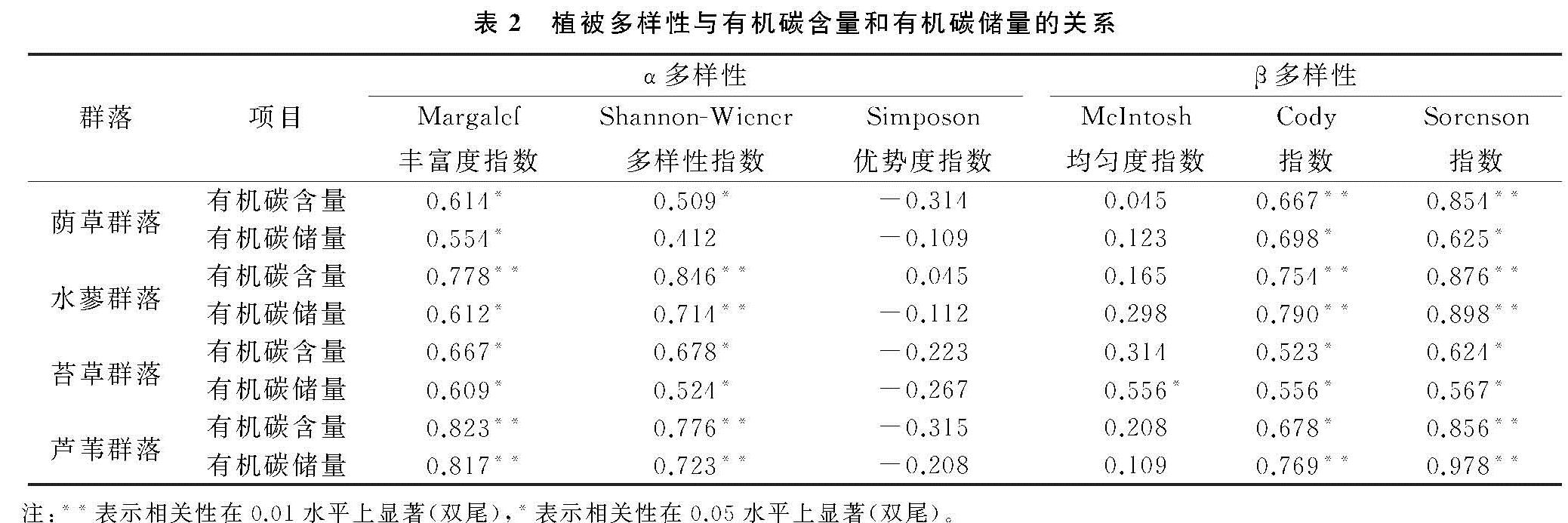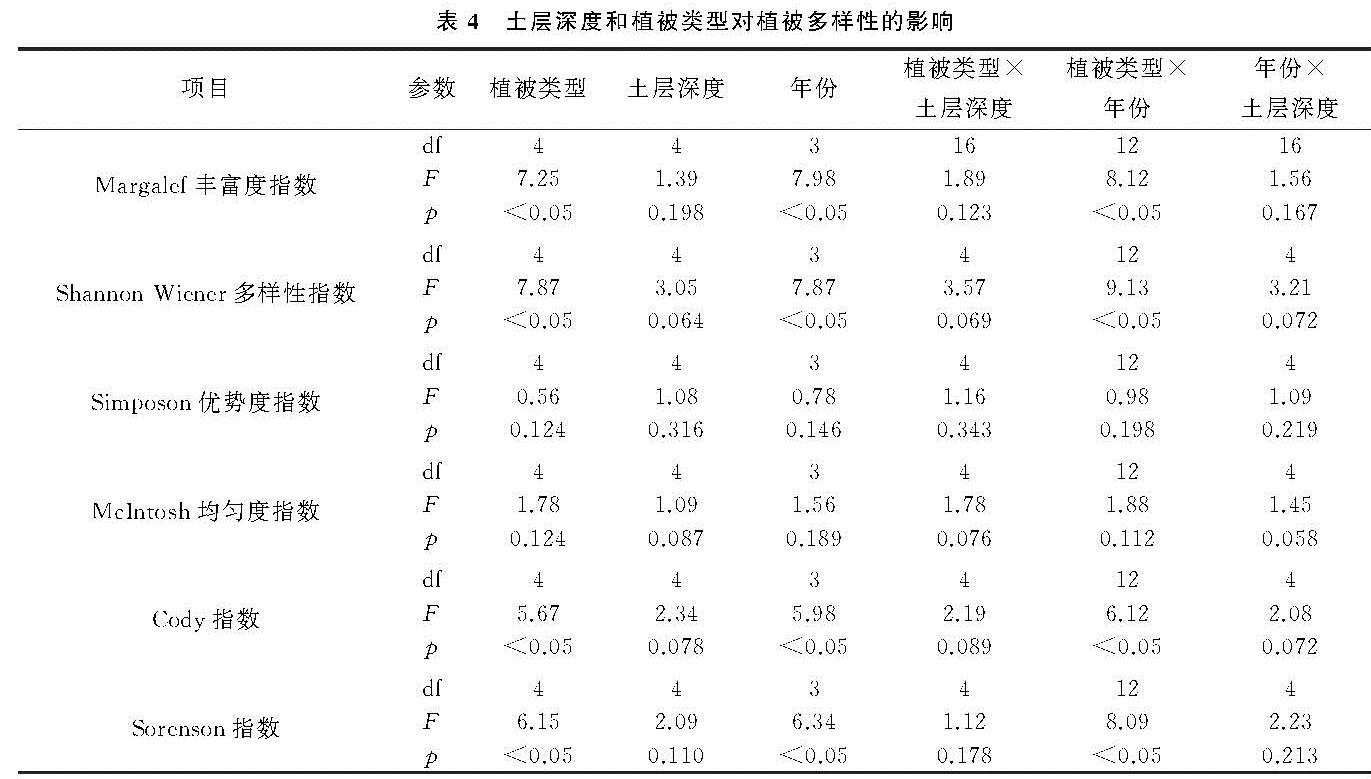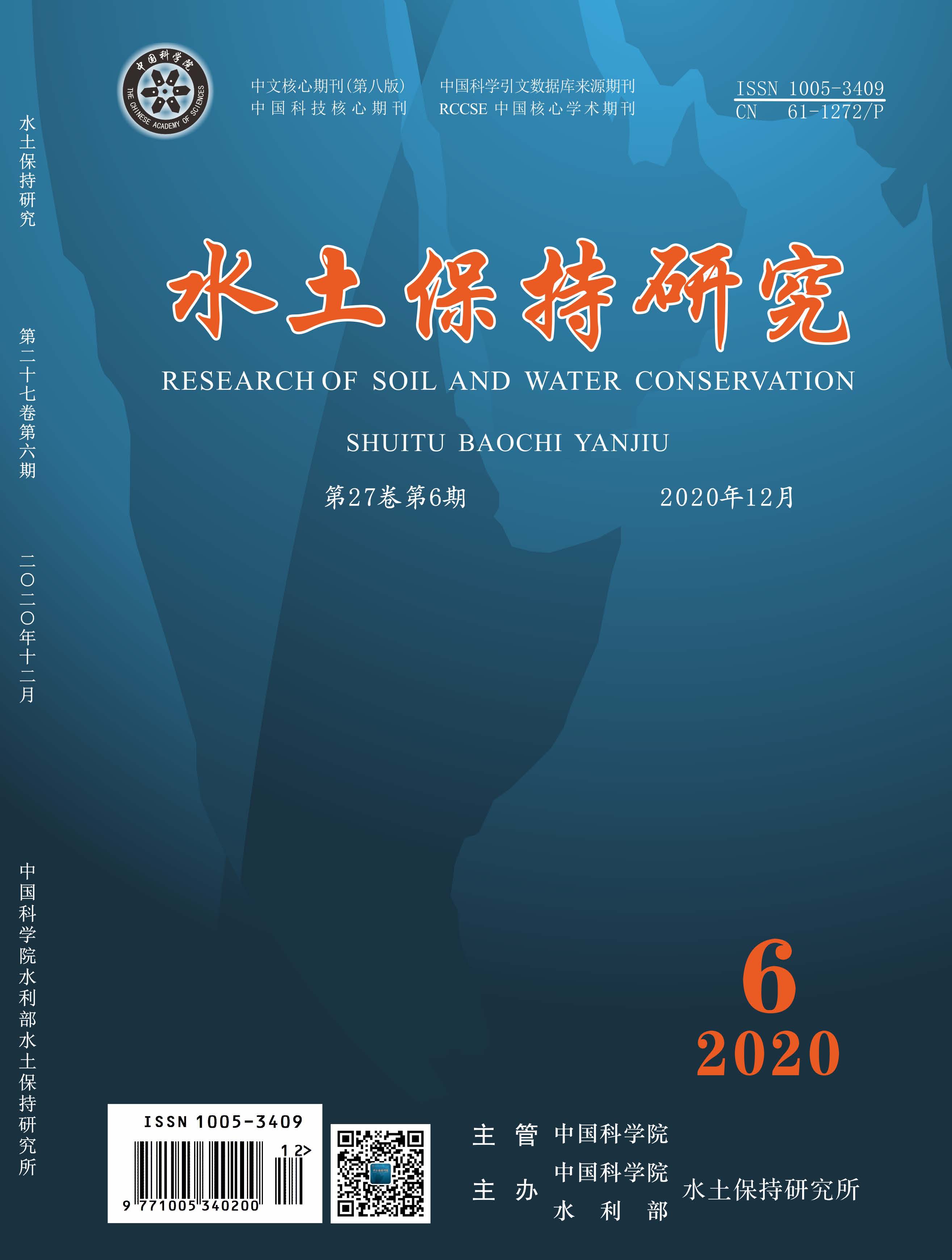第一作者:梁春玲(1982—),女,山东菏泽人,博士,副教授,主要从事湿地生态系统和区域环境变化研究。E-mail:Chunling_Liang123@163.com
备注
为了研究洞庭湖湿地植物群落多样性及土壤有机碳储量特征,选择洞庭湖主要湿地(荫草群落、水蓼群落、苔草群落、芦苇群落),2016—2018年连续3年监测植被多样性和土壤有机碳含量特征。结果 表明:洞庭湖湿地Margalef丰富度指数、Shannon-Wiener多样性指数和Mclntosh均匀度指数表现为芦苇群落>苔草群落>水蓼群落>荫草群落,随着年份的增加呈逐渐增加趋势; 对于Simpson优势度指数,则表现为相反的变化趋势。土壤有机碳含量和有机碳储量均呈一致的变化规律,其中以表层土壤最高,随土层深度的增加逐渐降低; 随剖面深度的增加,土壤有机碳储量逐渐降低,以表层土壤(0—20 cm)有机碳储量最高; 相关性分析表明,荫草群落、水蓼群落、苔草群落、芦苇群落Margalef丰富度指数、Shannon-Wiener多样性指数、Cody指数和Sorenson指数与有机碳含量和有机碳储量呈显著或极显著的正相关; 从相关系数绝对值来看,与有机碳含量的相关系数高于有机碳储量的相关系数。双因素分析表明植被类型和年份对有机碳含量和有机碳储量具有显著的影响(p<0.05),植被类型×年份对有机碳含量和有机碳储量具有显著的影响(p<0.05)。
In order to explore the plant community diversity and soil organic carbon storage in wetland of Dongting Lake, the vegetation diversity and soil organic carbon storage of the main wetlands(shade grass community, water polygon community, carex community and reed community)in Dongting Lake were examined from 2016 to 2018. The results showed that the Margalef richness index, shannon-wiener diversity index and Mclntosh evenness index in wetland of Dongting Lake decreased in the order: Phragmites australis community>Carex parva community>Polygonumhy dropiper community>Sciaphila tenella community; as for Simpson dominance index, it showed an opposite change trend; both soil organic carbon content and organic carbon storage showed consistent change patterns, with the topsoil being the highest and gradually decreasing with the increase of soil depth; with the increase of the depth profile, soil organic carbon storages reduced gradually, content of surface soil organic carbon(0—20 cm)was the highest, the correlation analysis showed that Margalef richness index, Shannon Wiener diversity index, Cody index and Sorenson index of Sciaphila tenella communities, Polygonumhy dropiper community, Carex parva community, Phragmites australis community were significantly or extremely significantly positively correlated with organic carbon content and organic carbon storage; from the absolute value of correlation coefficient, the correlation coefficient with organic carbon content was higher than that with organic carbon storage. The two-factor analysis showed that vegetation type and age had significant influence on organic carbon content and organic carbon storage (p<0.05), and the interaction of vegetation type and age had significant influence on organic carbon content and storage (p<0.05).







